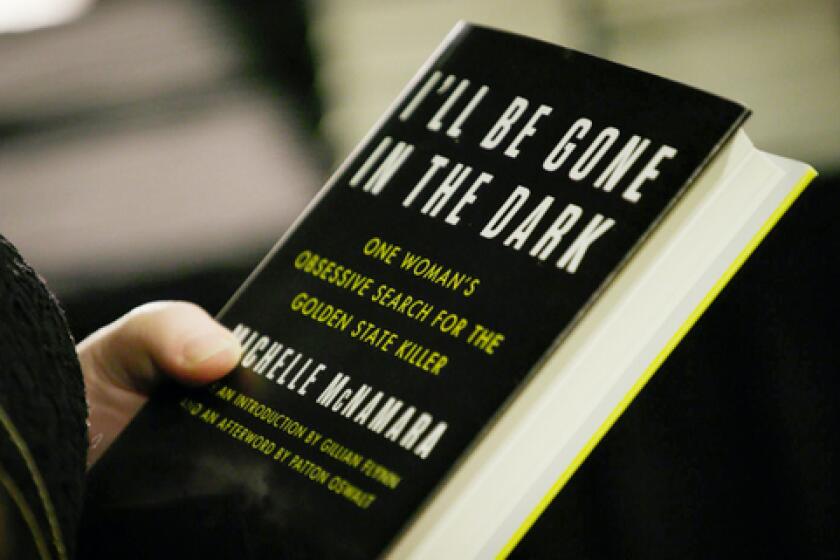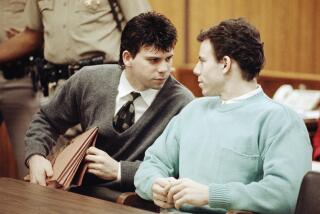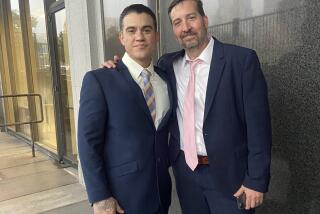True-crime TV often exploits its subjects. This game-changing duo wants to end that
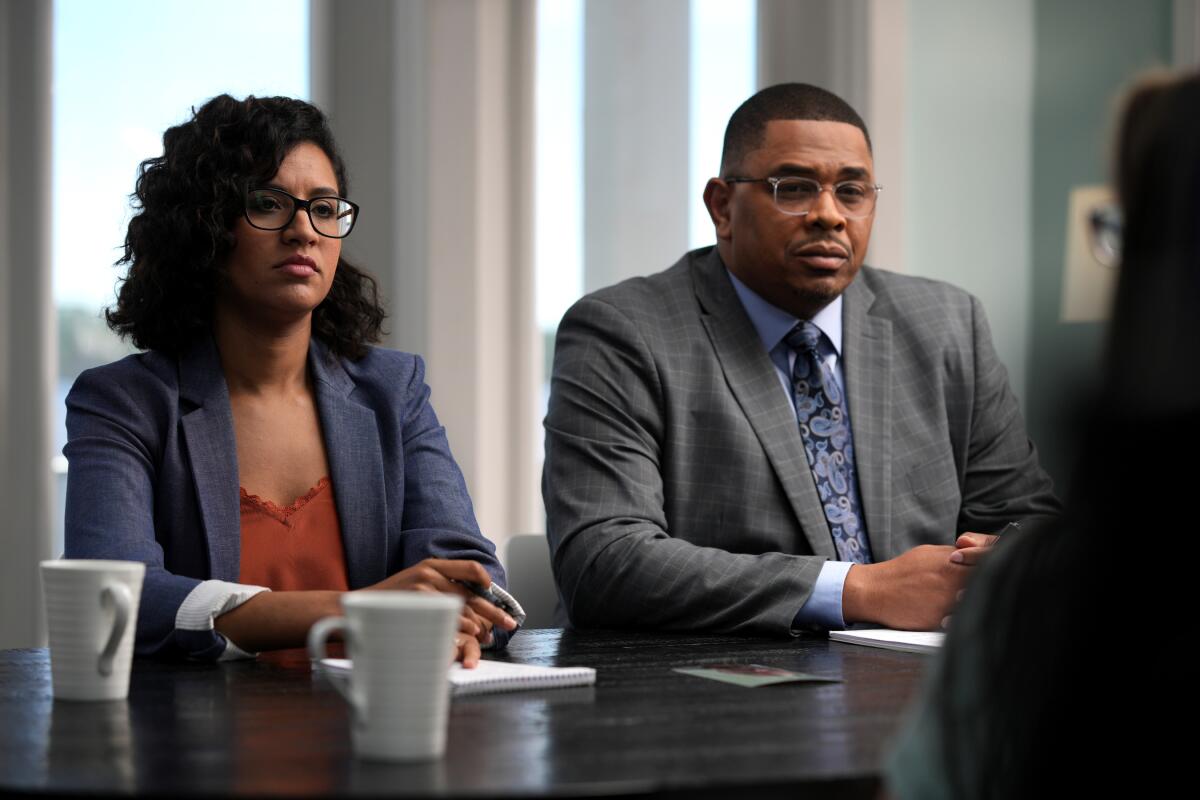
“Reasonable Doubt” is not your average true-crime docuseries.
In a genre where macabre murders are regularly exploited for entertainment’s sake, the Investigation Discovery series has a higher purpose: Its shrewd, empathetic hosts, retired Birmingham, Ala., homicide detective Chris Anderson and San Francisco criminal defense attorney Fatima Silva, work on behalf of families who feel their loved ones were wrongly convicted. Poring over the evidence, interviewing key witnesses and consulting experts, the duo ask whether judicial missteps led to an unjust decision — culminating, in each episode, with an emotional reckoning, where Anderson and Silva either provide the family with the hope for an appeal or deliver the hard news that their incarcerated father, son or mother‘s conviction appears sound.
Silva and Anderson get results too. “Reasonable Doubt,” which airs Tuesdays and streams on Discovery+, has helped to secure the release of six men from prison — one who was exonerated and five others who were subsequently paroled or their conviction overturned. It’s not only their investigative chops that make for such compelling television, though. Silva and Anderson’s skill sets and personalities couldn’t be more different: She’s gregarious and high-energy; he’s stoic and laid-back. Their distinct perspectives are an asset when scrutinizing the many facets of a crime — and engaging the viewer in a series that gives true crime a good name.
Silva and Anderson recently spoke to The Times about their shared mission, their methods and why “Reasonable Doubt” has a “higher calling” than entertainment. This interview has been edited for length and clarity.
Her body was discovered in a vacant lot, remote wooded area, dumpster or car trunk.
There’s so much true-crime programming, from trashy, scandalous fare to high-end documentaries. “Reasonable Doubt” stands out because it gives resources and attention to cases that may not have been justly resolved.
Fatima Silva: A lot of true crime focuses on the glorification of the murder. They love the salaciousness of showing what happened. We’re about understanding the evidence and showing how a case can go from what should have been innocence to guilt, based on one eyewitness or a forced confession. I hope we’re educating people so they could be that one person [on a jury] who holds out and says, “You know what, I’m just not convinced. There’s only one eyewitness. I’m not comfortable with that.” One holdout — that’s all it takes.
The more educated we become about the flaws in our system, the closer we can get to fixing those flaws.
Chris Anderson: Not only do we see a problem and talk about a problem and highlight the problem, we help to solve it. And that’s been one of the greatest aspects of us doing the show. We tell people all the time that this is not just entertainment. We feel we have a higher calling.
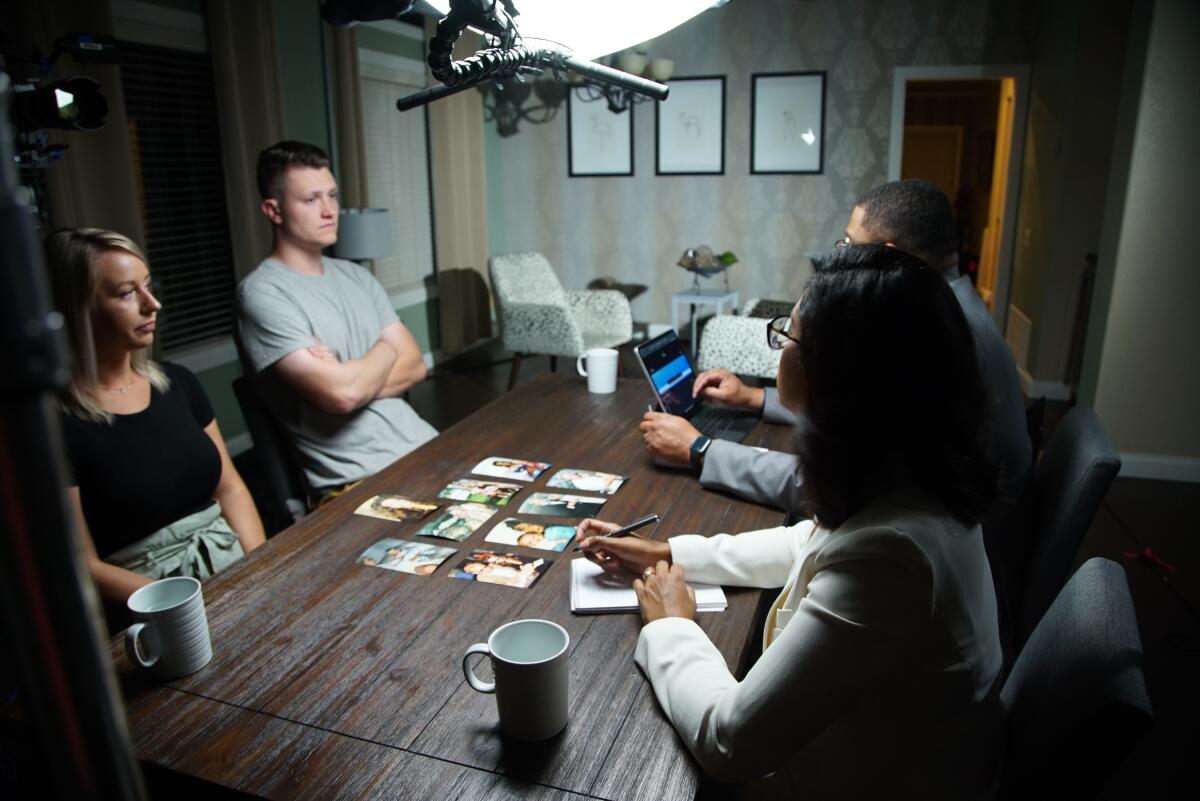
A cop and a defense lawyer. Those roles usually work in opposition to one another. Can you talk about how that plays out in the investigations you do for the show?
Silva: It’s really progressive to have two people from [opposite] sides of the aisle come together. Never does a police investigator work with a defense attorney, ever. It’s normally just me and a prosecutor. The nice thing is that Chris is somebody who’s going to bring expertise and do it objectively. He’ll say, “You know what, this was bad police work and I don’t agree with it.” I love that he’s able to come to that conclusion. I think it makes people respect what he does more.
Anderson: I was glad when Fatima came in. She pushed back on a lot of the things that we were presenting, and it helped me to be a better investigator. In all my years of working homicide cases, I’ve never had anyone that I worked with that required me to see things another way. She’s pushing to make sure that we get things right, and I appreciate that. That’s who she is. This is what she sees. This is her lane.
Chris, when you talk to the accused, your years working homicide really show. You’re like a living, breathing lie detector test.
Anderson: I wouldn’t be worth my salt if you didn’t have enough investigative experience to tell when somebody is lying. So yes, I do have a b— meter, and it goes off when we’re filming. I can usually tell after I ask them those preliminary questions. There are some cases where I know that they’re lying and I have evidence to prove it, but I won’t even bring it up. I know that we’re not going to get anywhere.
From Netflix’s new ‘Unsolved Mysteries’ to ‘A Wilderness of Error,’ true-crime TV is rife with re-creations. But the trope raises ethical issues.
The folks on your show are not the Durst family. They don’t have the resources to hire attorneys and experts.
Silva: We bring in experts, and they are fantastic. Ballistics, DNA, a firearms expert. I’m so excited to get them because it’s true that these people can’t afford to on their own. Even behind the scenes, the research teams are amazing. They track down people nobody else can find. These families often hired private investigators and a law firm, and even they couldn’t find the co-defendants or witnesses. Our research team, they figure it out. They are out there on the hunt.
There have been quite a few episodes where your research shows that the convicted has likely been untruthful with their own family.
Anderson: People think that because we’re not saying that this person is innocent, we’re not helping. We help people every single week, no matter what we say. Some of these people, we’re freeing them from the fight, from someone that’s been manipulating them for many, many years. And then some we are freeing from prison.
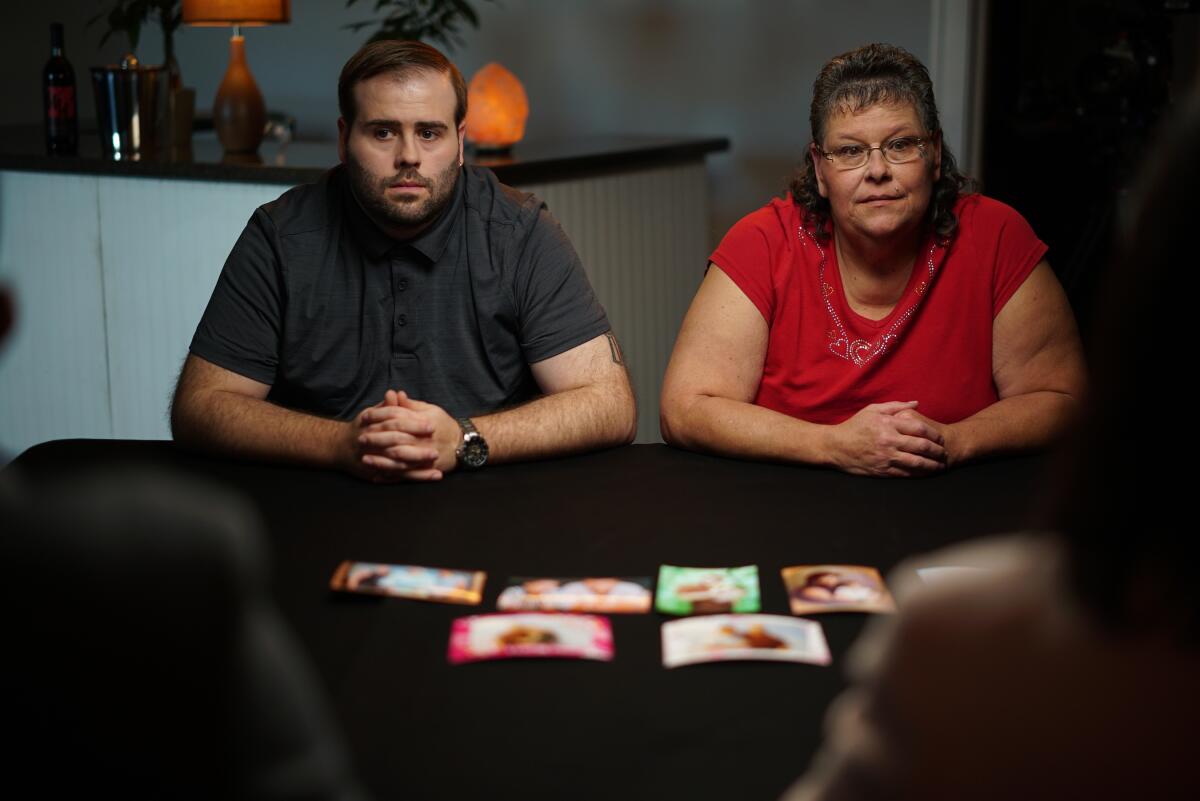
But breaking bad news to the families can’t be easy.
Silva: [It’s] the weight of sitting across from someone who’s going to take everything you’ve just said into consideration. They’re going to take it as truth. They’re going to rely on that to [guide] the choices that they make with someone that is probably the most precious person in their life. That is not something that Chris and I take lightly. You don’t want to play with people’s lives. You don’t want to play with their hearts. It’s a huge responsibility and a heavy burden. We’re called in to do a job that just so happens to have a camera filming. We forget it’s going to be a show six months later.
Can we talk about those who were freed from prison because of the show? Take David Clark: In 1991, he was 15 years old when he broke into a house in Dayton, Ohio. He claimed it was to save a family from a fire. The prosecution said he did it to rob the place and then burn it to the ground, killing a 12-year-old girl in the process. The jury didn’t believe him, and he was serving a life sentence for murder when his sisters contacted you to look at his case. You investigated, found it was a shoddy investigation, then threw resources toward proving his innocence. After 30 years in prison, Clark was paroled.
Anderson: That is the mission. And that case in particular was very emotional for Fatima and I. The way that the investigation was handled is like scratching fingernails on chalkboard for me. It’s scary because that could have been your son, that could have been my son, anybody’s son. ... Looking at that case, and looking at what happened, it was deplorable. I hate to see my profession, my mother’s profession, [degraded] by cases that were investigated in that manner.
Silva: I tell people to keep an open mind: You may hear the opening credits and automatically dismiss [Clark] like, “Oh, that sounds like a likely story.” But you have to keep in mind that a lot of exonerations at first sounded like “a likely story.” But those people were eventually exonerated by DNA, and other information and evidence. So anything is possible. David fit the bill. I remember sitting with a psychologist and an expert in that episode, and I really challenged him because I did feel like something was wrong in this case. He wanted to sum up David like a little sociopath. I thought, “How many children across the nation are being treated this way?” With a young person, it’s so important to give them the benefit of the doubt. And in this case, I don’t think that was done, and it landed this guy in jail for 30 years.
From ‘Unsolved Mysteries’ to ‘I’ll Be Gone in the Dark,’ true crime is ubiquitous on TV. But it may not be as impactful as its cultural footprint suggests.
On the flip side, there are episodes where you find the subject is likely guilty.
Anderson: It’s much harder to tell someone that their loved one is guilty, and we can’t get behind the case, than it is to tell someone that they’ve been wrongfully convicted. Laverne Fields’ children were a prime example of it. They came from terrible circumstances but overcame them. We really wanted a win for them. I was hoping that we would find something that proved that [her husband’s death] was a suicide and not murder, but with every turn of the page, with every expert we talked to, it was not working out that way. I thought, “OK, we have to give this family some more bad news.” But you know what actually happened? It helped them tremendously. It lifted a burden.
Silva: It’s so hard when it’s the kids of [the convicted]. It’s a lot of trauma to process. Your identity is in your parents, so if you’re going to tell them that their parent possibly committed a crime, that’s really tough to do. But what we’ve realized is that we’re actually giving them the freedom of healing. And often it’s the children who have been our No. 1 advocates. They come back and they say, “Thank you, I can move on.”
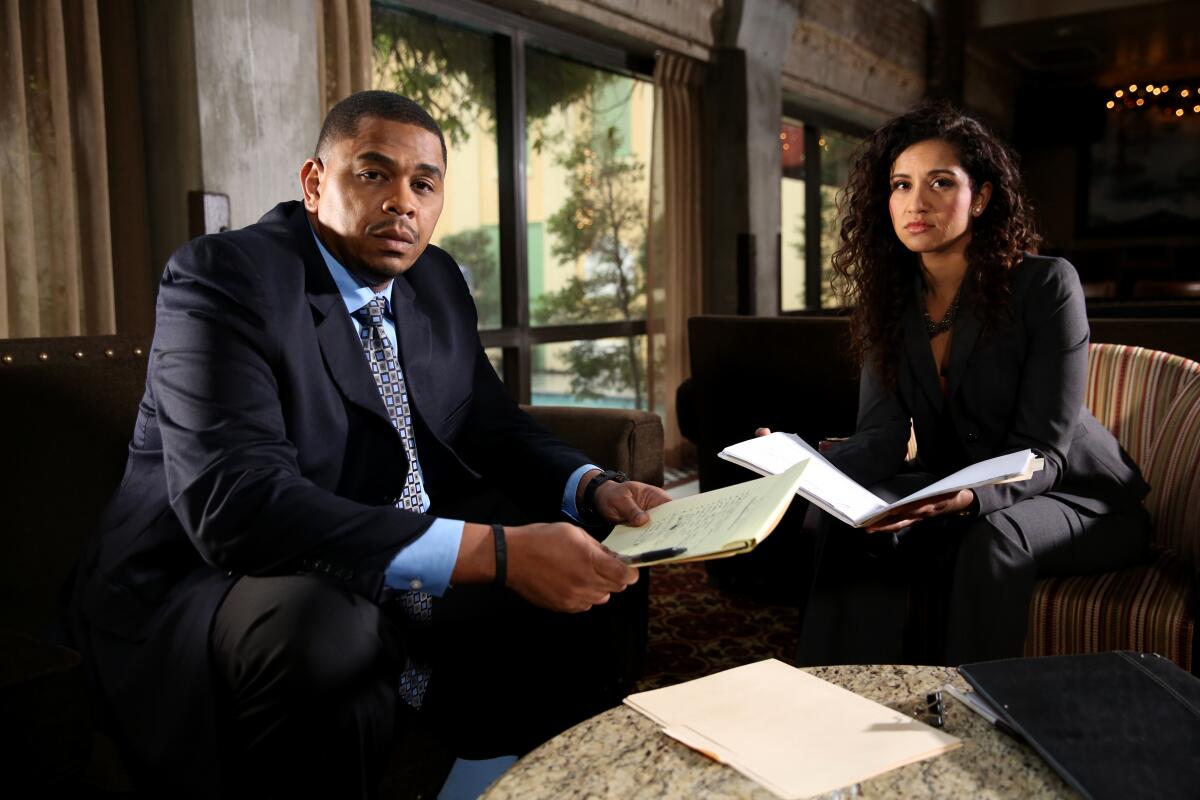
Part of what makes the series work is that viewers can see how emotionally invested you are in the cases.
Silva: I want people to see that we’re real, that we’re empathetic, that this isn’t fake to us. We had to have a good talk with our main producer, Rob Rosen. I love him to pieces. He’s an investigative journalist, so he’s very, very objective. The truth is all he’s after. So we’re a good mixture. I’ve actually been chewed out for not being more direct with the families on what we’ve uncovered. Yes, we’re giving them the truth of our investigation. But we may do it with so much love that Rob’s going, “What did you really just tell them? I mean, did they understand that you’re not helping them?” It’s one of the hardest things that Chris and I have to do. Sometimes we are a little soft and we get scolded. But he picked our personalities for a reason. We’re not sugarcoating it, but we also speak from the heart. It hurts us to hurt people. And we have to find ways to deliver a blow with as much grace as possible.
Chris, as an ex-cop, is scrutinizing the work of fellow officers difficult for you?
Anderson: It is, but I’m a believer of truth and justice. I know it may sound a little cliched, but if we didn’t do our jobs [well], then it’s up to somebody who understands the profession to say, “Hey, this is not right” — I don’t take it lightly that I have to say that cops did something wrong. But when it’s a subpar investigation, things can go terribly, terribly wrong. It’s bad, and it’s bad for our profession. Truth and justice should not just stop at the drop of a gavel.
Fatima, “Reasonable Doubt” is a TV show, and a lot can happen in the edit bay. Do you ever push back on the way you or the investigation are portrayed?
Silva: I’ll be honest, sometimes I see what they did with edits and I’ll complain. I think there was an episode where some kid said, “We smoked weed,” and then they cut to me making [makes a disapproving expression]. I’d never make that face when it comes to something like that! There’s little edits that we have no control over, but ultimately, when Chris and I are in the middle of filming, we forget all about the cameras. So much so that sometimes I look back at what I’m wearing or how my hair is done and I really wish I had cared more about the cameras being there. I’m constantly late for hair and makeup because I’m doing research. They’re trying to work on the eye shadow and I’m like, “Hold on, I’m still [reading] this.” There’s a couple of episodes where my hair looks so bad because I’m like, “Just do whatever, we don’t have time.” We’re focused on the evidence.
‘Reasonable Doubt’
Where: Investigation Discovery and Discovery+
When: Anytime
Rating: TV-14 (may be unsuitable for children under the age of 14)
More to Read
The complete guide to home viewing
Get Screen Gab for everything about the TV shows and streaming movies everyone’s talking about.
You may occasionally receive promotional content from the Los Angeles Times.
